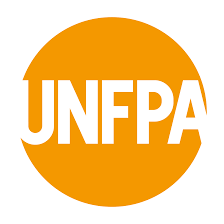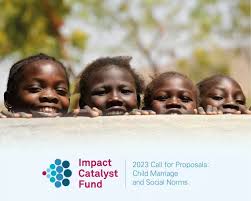The Challenge
Harmful practices, such as child marriage and female genital mutilation (FGM), present significant challenges to child development and human rights in the African region, particularly affecting the well-being of girls. The region is home to nearly 60 million child brides and 140 million girls and women have undergone FGM.1 In Burkina Faso, over 38 percent of women aged 20-24 were married before the age of 18, and approximately 56 percent of women aged 15-49 have undergone FGM.2 Despite progress in the last decade, these statistics rank the country as among the highest in the region for harmful practices.
In an effort to end child marriage and other harmful practices, UNICEF and UNFPA launched the Global Program to End Child Marriage (GPECM) and the Joint Program on the Elimination of FGM—both of which include Burkina Faso as a focal country. These initiatives work across dozens of countries in sub-Saharan Africa, the Middle East and North Africa and South Asia to affect social change at scale and in collaboration with national governments. In Burkina Faso, initiatives include interventions to help adolescent girls build confidence and skills, promote positive masculinities among adolescent boys, while working with communities to question and change attitudes and norms that support harmful practices.
The Intervention
The intervention has been delivered by UNICEF, UNFPA and partners since 2017, targeting approximately 60,000 at risk children. The intervention is implemented at the community level in rural areas with two main components taking place over a 12-month period: The program combines two key components:
- Community engagement involves taking action to influence important people in the community—like holding group discussions and running workshops with religious leaders—to build agreement and make a public stand against harmful practices.
- Positive masculinities include clubs for adolescent girls and boys aged 10 to 19 offering 32 to 36 hours of guided sessions that teach life skills, provide sexual and reproductive health education, and create space for honest discussion about child marriage, FGM, and other forms of violence against children.
The Evaluation
As part of the UNICEF Evaluation Office’s Impact Catalyst Fund (ICF) on child marriage and social norms, IPA Burkina Faso, UNICEF, and UNFPA are collaborating on a randomized evaluation assessing the impact of community engagement and positive masculinities interventions on reducing harmful practices experienced by adolescents and young girls. The evaluation involves approximately 7,500 households with unmarried adolescent girls aged 12 to 17 (the group selected to evaluate child marriage) and girls aged 0 to 4 (to evaluate FGM), across 150 villages from the Central North and Central South regions of Burkina Faso, who were randomly assigned to one of the following groups:
- Community engagement only: These villages will receive the community engagement intervention.
- Community engagement + positive masculinities: These villages will receive both the community engagement and the positive masculinities interventions.
- Comparison group: These villages will not receive any intervention during the study period.
The study includes a survey before the program starts and a follow-up one 18 months after the intervention begins. At the end of the program, there will also be interviews and group discussions to understand how the program worked, what changed, and how people felt about their experiences and its impact.
The study will assess the impact of the intervention on outcomes, including harmful practices and violence against children. In addition, the study will measure mechanisms of change, including increased awareness and knowledge, reductions in attitudes supporting harmful practices, increases in agency and willingness to act, conformity effects, as well as changes in community social norms. The study will also collect costing data to analyze the cost-effectiveness of the program.
Results will be available in 2027.
Sources
1 UNICEF 2022, "Towards Ending Harmful Practices in Africa: A Statistical Overview of Child Marriage and Female Genital Mutilation".
2 INSD 2023, "Enquête Démographique et de Santé du Burkina Faso 2021".
Implementing and Funding Partners


Research Partner













